How children can heal
All forms of child abuse can make a child feel helpless and disrupt their sense of safety and security. It can also have long-lasting effects well into adulthood, if they are left unresolved. If a child has experienced abuse, encourage them to TALK to people who can help them:

- T Tell a trusted adult
- This could be a trusted family member, a teacher, or relevant authorities. They can even make anonymous calls to the toll free Child Helpline 1412. It can be very difficult for victims to talk about their experience, but let them know that it important to get help and that they should not have to suffer alone. Sharing with a trusted adult is an important first step in dealing with abuse. However, caution them that sometimes some people may not react with the expected level of understanding and kindness, but that help is still available. Guide them to seek professional help when they are ready.
- A Acknowledge and accept what has happened
- Many children deal with the trauma of abuse by minimising or denying it. Help them understand that accepting what happened does not mean embracing the trauma or agreeing with it. Acceptance means deciding how to overcome it and move on. Help children who have suffered abuse to let it go and not let it rule their life. Help them learn that letting go does not mean what happened no longer happened. It means no longer letting the bad memories rob them of having a happy life now.
- L Learn ways to cope and heal
- Teach children not to react to adversity with anger. Help them find something to love, such as an extracurricular activity that they enjoy, or looking after a plant or pet, which can be healing. Encourage children to establish a daily routine that allows them to get plenty of rest, eat a well-balanced diet and exercise regularly which could not only give them a sense of power and control, but also help them cope with stress. Help children to let go of negative feelings and replace them with good ones. Teach them to be patient with themselves and honour their progress, no matter how small it may seem.
- K Know it’s not your fault
- Many perpetrators of child abuse make the victim believe they are to blame for what happened. It is important for the child to understand that some adults commit wrong doings and that the abuser is responsible. Remind children that abuse is always the perpetrator’s fault. Let the child know that they have not done anything wrong. Reassure the child that they are not guilty or responsible for it in any way.
- It is also important to remember that there are many different stages of healing; from seeing yourself as a victim to a survivor.
-
This means that a child may go through a range of emotions and feelings such as those mentioned below, on their road to recovery.
- Moving from feeling hopeless; to hopeful; to having faith in themselves and life.
- From feeling alone; to seeking help; to finding peace with themselves.
- Feelings of low self-esteem/shame/unworthiness; changing to seeing themselves as wounded & healing; then to acceptance, recovery and moving forward.
- Experiencing feelings of confusion and numbness; learning to grieve; leading to understanding that emotional pain will pass and that it brings new insights.
- Feelings of “Depression” and being overwhelmed by the past; to finding joy in simple things and living in the present while looking forward to the future.
- Hiding their story; to not being afraid to tell their story to safe people; and moving beyond telling their story, but always aware that they have created their own healing.
- Being serious all the time, uncomfortable, numb or angry; to increasing awareness of pain and finally beginning to smile and laugh.
- IGMH Family Protection Unit
- Mind Matters Psychology & Consulting Services
H.Thila, First Floor, Bodufungandu Magu, Male', Maldives
Tel: +960 3010008, Email: mindmatters.maldives@gmail.com - Society for Health Education (SHE)
M, Kulunuvehi, Buruzu Magu, Male', Maldives
Tel: +960 3327117 – ext 174, Email: she8804@dhivehinet.net.mv - Maldives Institute of Psychological Services, Training & Research (MIPSTAR)
H. Bandos ge, 5th Floor, Male' , Maldives
Tel: +960 7442626, Email: mipstar10@gmail.com
* Note to parents/caretakers: Please share these messages in an age appropriate way, with children who have suffered abuse.
SEEKING HELP
Child abuse affects the child and the whole family. In addition to counselling, it may be important to get legal assistance and medical examinations for the child.
Health Services
Counselling
Male'
Note: While there are charges for the counselling services at Mind Matters and MIPSTAR, SHE provides phone counselling free of charge.
Atolls - Family and Children Service Centres (FCSCs)
| Island | Phone number | |
| HA. Dhidhdhoo | 6500577 | hafcsc@health.gov.mv |
| HD. Kulhudhuffushi | 6528211, 6528210 | hdfcsc@health.gov.mv |
| SH. Funadhoo | 6540610 | shfcsc@health.gov.mv |
| N. Manadhoo | 6560601 | nfcsc@health.gov.mv |
| R. Ungoofaaru | 6580383 | rfcsc@health.gov.mv |
| B. Eydhafushi | 6608472 | bfcsc@health.gov.mv |
| LH. Naifaru | 6620390 | Lhfcsc@health.gov.mv |
| AA. Rasdhoo | 6660867 | aafcsc@health.gov.mv |
| AD. Mahibadhoo | 6680871 | adfcsc@health.gov.mv |
| V. Felidhoo | 6700038 | vfcsc@health.gov.mv |
| M. Mulah | 6720593 | mfcsc@health.gov.mv |
| F.Nilandhoo | 6740593 | ffcsc@health.gov.mv |
| DH. Kudahuvadhoo | 6760632 | dhfcsc@health.gov.mv |
| TH. Veymandoo | 6780613 | thfcsc@health.gov.mv |
| L. Fonadhoo | 6800778 | lfcsc@health.gov.mv |
| GA. Villingili | 6824656 | gafcsc@health.gov.mv |
| GDH. Thinadhoo | 6842583, 6842584 | gdhfcsc@health.gov.mv |
| GN. Fuvahmulah | 6862082 | gnfcsc@health.gov.mv |
| S. Hithadhoo | 6888708, 6888709 | sfcsc@health.gov.mv |


